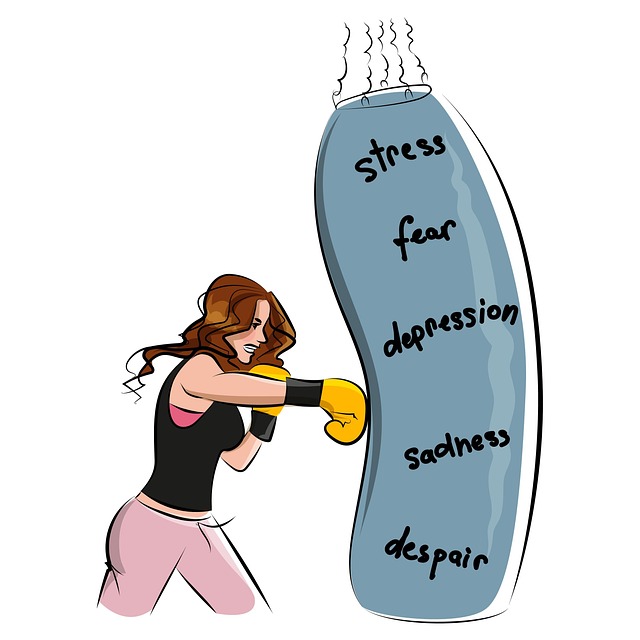Substance abuse in young children is a growing concern, but early intervention through specialized therapy for young children led by therapists-clinicians can mitigate risks. These professionals use evidence-based practices like cognitive-behavioral therapy (CBT) and motivational interviewing (MI) to build self-awareness, promote positive thinking, and teach healthy coping mechanisms. Culturally sensitive, compassion-focused approaches enhance the therapeutic environment, empowering children to make better choices and avoid addiction triggers. Prioritizing therapists' well-being through training ensures consistent, high-quality support for the community's collective health.
Substance abuse among young children is a growing concern, highlighting the need for robust risk reduction strategies. This article explores comprehensive approaches to mitigate these risks, focusing on early intervention through therapy for young children and supporting therapists and clinicians with effective strategies. We delve into evidence-based practices proven to reduce risks and emphasize the creation of tailored prevention plans. By understanding the unique challenges faced by both children and their support systems, we can implement more successful interventions.
- Understanding Substance Abuse Risks in Young Children
- Early Intervention: The Role of Therapy for Young Children
- Supporting Therapists and Clinicians: Effective Strategies
- Evidence-Based Practices for Risk Reduction
- Creating a Comprehensive Prevention Plan
Understanding Substance Abuse Risks in Young Children

Substance abuse among young children is a growing concern, with potential long-lasting effects on their development and overall well-being. Understanding the risks associated with early exposure to substances is paramount in developing effective prevention strategies. Young minds are particularly vulnerable, as their brains are still developing and shaping. This period of vulnerability makes it crucial for therapists and clinicians to step in and provide therapy for young children showing signs of substance abuse.
Early intervention through tailored therapy programs can significantly reduce the risks associated with substance abuse. Therapists play a vital role in guiding these young individuals towards healthier coping mechanisms, fostering self-awareness exercises, and promoting mental wellness. Techniques such as journaling exercises can be powerful tools to encourage reflection and positive thinking. By addressing underlying issues and providing guidance, therapists enable children to make better choices, ensuring their future growth is not impeded by the negative impacts of substance abuse.
Early Intervention: The Role of Therapy for Young Children

Early intervention plays a pivotal role in mitigating substance abuse among young children. Therapy for therapists and clinicians specializing in pediatric mental health is crucial to identify potential risks early on. Through dynamic therapy sessions, professionals can employ empathy building strategies to create safe spaces where children feel understood and supported. By fostering open communication, therapists aid in recognizing subtle signs of distress or experimental substance use before it escalates.
In addition to empathy building strategies, crisis intervention guidance becomes a vital tool. Teaching young individuals how to navigate challenging situations without resorting to substances requires structured programs tailored to their age group. Furthermore, integrating self-care routine development for better mental health is an integral part of comprehensive therapy. Equipping children with healthy coping mechanisms strengthens their resilience and reduces the likelihood of turning to substances as a means of self-soothing or escape.
Supporting Therapists and Clinicians: Effective Strategies

Supporting therapists and clinicians is a vital component of any risk reduction strategy for substance abuse, especially when targeting young children. Effective therapy sessions require not only specialized knowledge but also a compassionate and culturally sensitive approach. Incorporating practices like compassion cultivation can enhance the therapeutic environment, fostering a safe space for vulnerable youth to open up about their struggles.
By prioritizing cultural sensitivity in mental healthcare practice, therapists can better understand and address the unique needs of diverse populations. This might involve learning about different cultural backgrounds, beliefs, and traditions to ensure that therapy aligns with the client’s values and experiences. Additionally, self-esteem improvement techniques can empower young individuals, helping them develop a positive sense of self, which is crucial for building resilience against substance abuse.
Evidence-Based Practices for Risk Reduction

Evidence-based practices play a pivotal role in risk reduction strategies for substance abuse, offering hope and effective solutions. Therapies tailored for young children, such as cognitive-behavioral therapy (CBT) and motivational interviewing (MI), have proven successful in preventing and addressing substance misuse at an early age. CBT equips kids with essential coping mechanisms to manage stress and emotions, while MI helps them explore their motivation for change.
For therapists and clinicians, integrating evidence-based practices into their work is crucial. Effective communication strategies, including active listening and open dialogue, foster trust and encourage clients to share their struggles openly. Additionally, burnout prevention strategies for healthcare providers are essential, as they ensure the long-term sustainability of these practices. By combining these methods, therapists can deliver high-quality care, ultimately reducing risks associated with substance abuse.
Creating a Comprehensive Prevention Plan

A Comprehensive Prevention Plan for substance abuse begins with early intervention, particularly focusing on therapy for young children. By integrating evidence-based practices, therapists and clinicians can effectively address underlying issues that may contribute to at-risk behaviors. Tailoring therapeutic approaches to cater to the unique needs of each child fosters a robust defense mechanism against potential addiction triggers later in life.
Incorporating self-care practices alongside anxiety relief techniques is paramount within this strategy. Teaching young individuals stress reduction methods empowers them to manage challenging situations without resorting to substance abuse. When therapists also prioritize their own well-being through ongoing training and self-care, they can consistently offer the best support to their young clients, creating a ripple effect of positive change that extends beyond individual lives to influence community health as a whole.
In addressing substance abuse risks in young children, a multi-faceted approach is crucial. From understanding specific vulnerabilities to implementing evidence-based practices, each strategy plays a vital role in prevention. Early intervention through therapy for young children, specifically tailored to their needs, proves highly effective. Additionally, supporting therapists and clinicians with appropriate strategies ensures consistent care. By combining these methods, we can create comprehensive prevention plans that significantly reduce risks, fostering healthier development for our youngest individuals.








